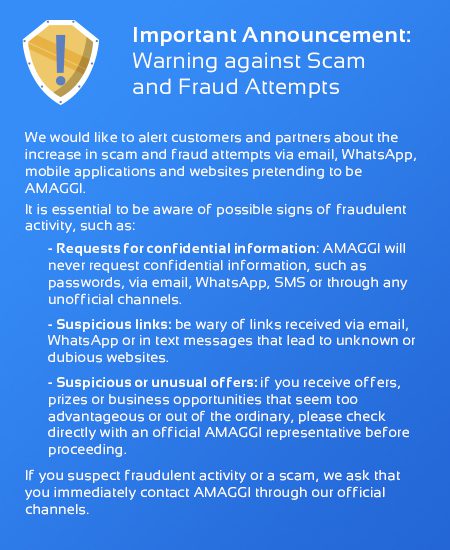Sementes Maggi Is Born
Our history began in São Miguel do Iguaçu (PR), with Sementes Maggi, founded by André Maggi, his wife, Lúcia Maggi, and his son, Blairo Maggi.
The first AMAGGI unit, Sementes Maggi, was inaugurated in 1977 in the city of São Miguel do Iguaçu, in the state of Paraná. Two years later, in 1979, activities began in Mato Grosso, with the acquisition of a farm in the municipality of Itiquira.
Since then, the company has expanded its business units and areas, expanding its operations in Brazil and abroad. Headquartered in Cuiabá (MT), it is currently the largest Brazilian company in the country's grain and fiber chain and is also present in China, Argentina, Paraguay, Holland, Norway and Switzerland.
In addition, since 1997 it has contributed to local and human development in the communities where it operates, placing itself as a partner in the sustainable development of these locations through the André and Lucia Maggi Foundation.

Our history began in São Miguel do Iguaçu (PR), with Sementes Maggi, founded by André Maggi, his wife, Lúcia Maggi, and his son, Blairo Maggi.
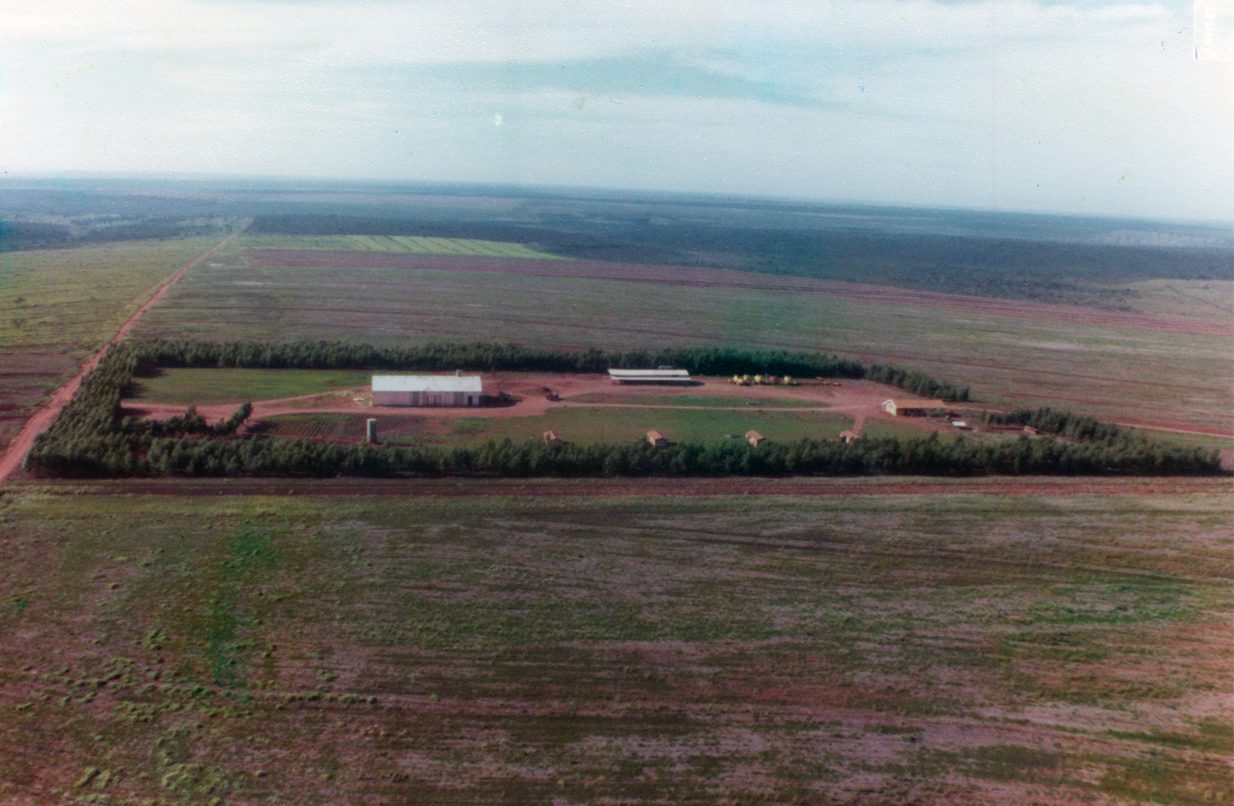
Sementes Maggi acquires its first property in Mato Grosso: SM1 Farm, in Itiquira, starting the continuous and consistent process of evolution of its activities.
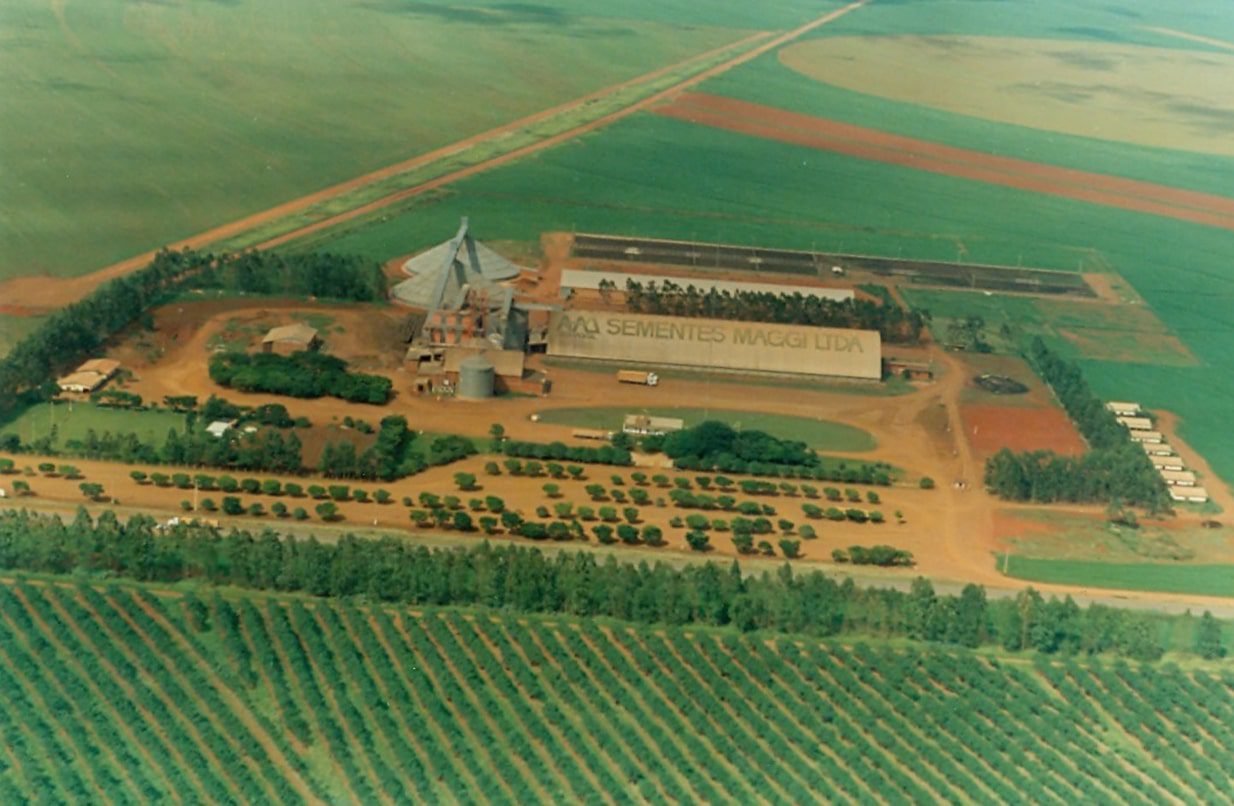
In 1983, we inaugurated our first warehouse at the SM3 Farm, in Itiquira (MT)
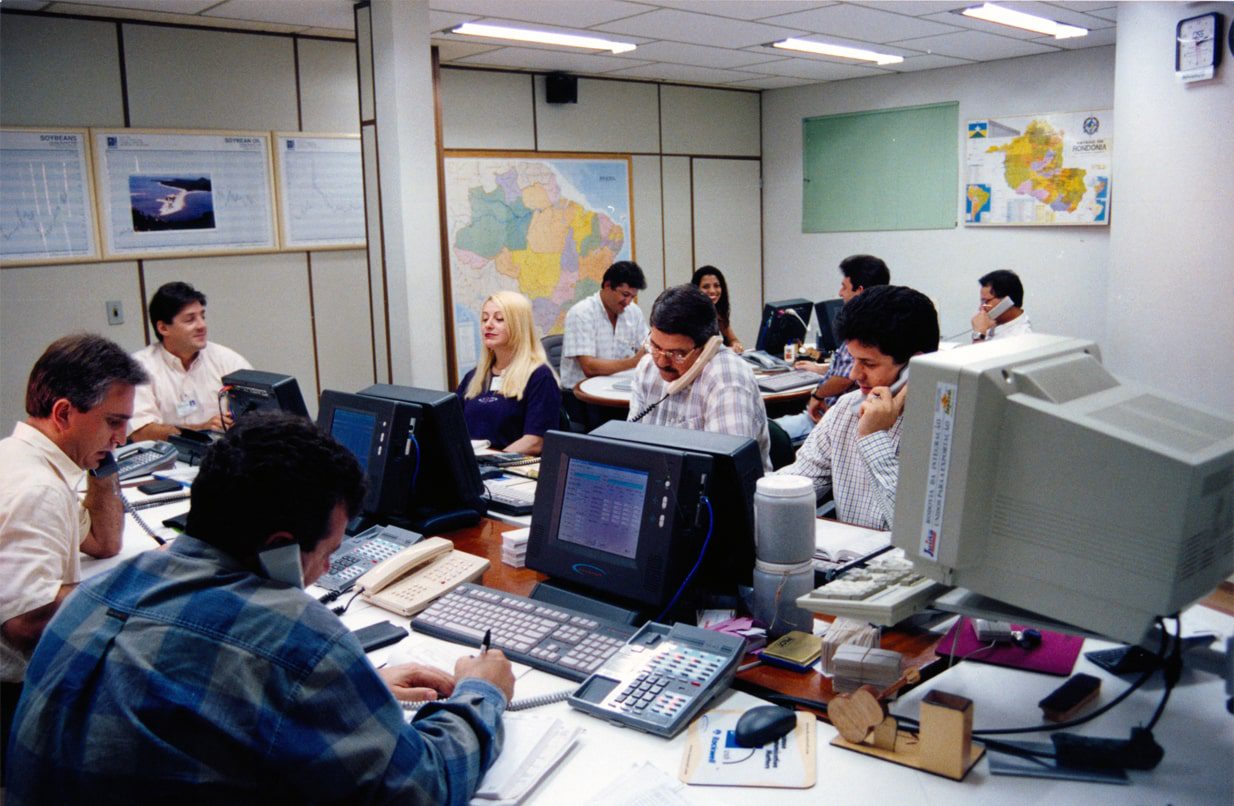
In 1984, the company moved its headquarters to Rondonópolis (MT) and branched into other sectors, as it started to operate in the energy segment.
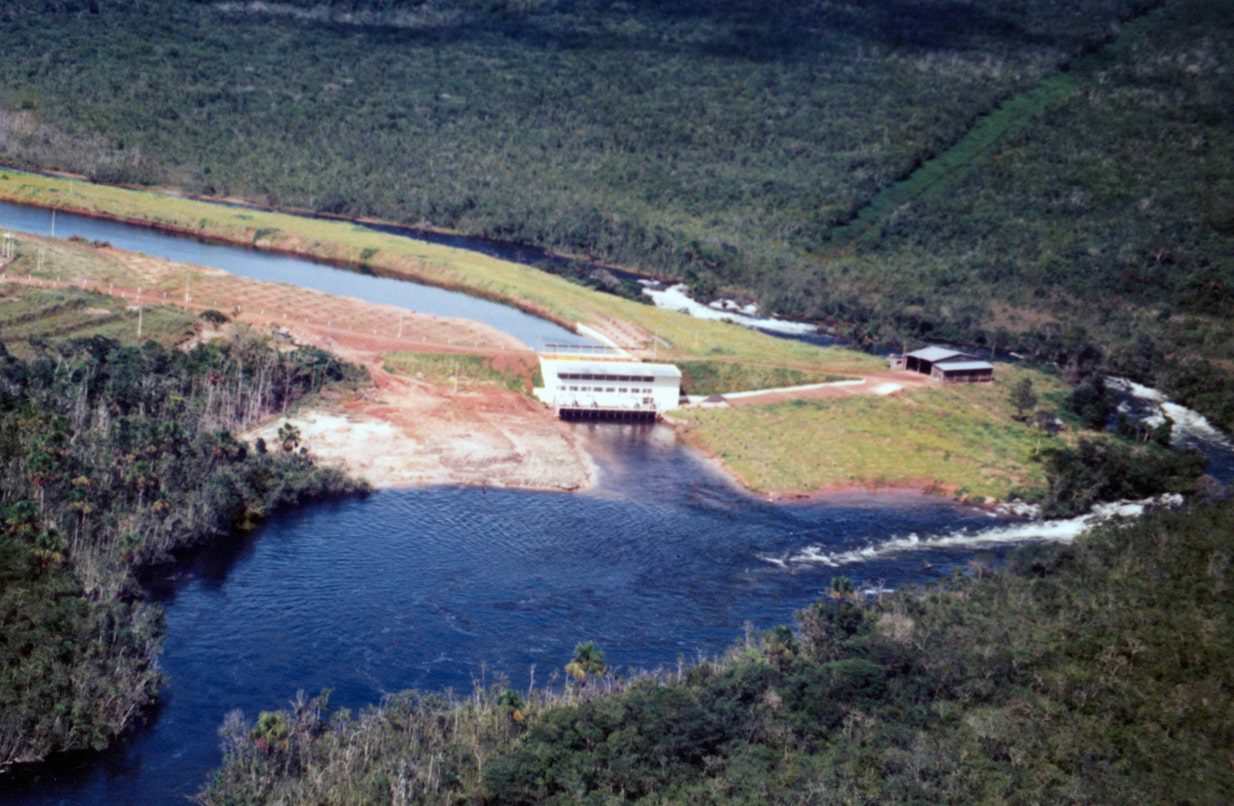
In Sapezal (MT), the first SHP of the Maggi Group is created, Santa Lucia I. In addition to the SHP, there were also installed transmission lines and the power distribution system.
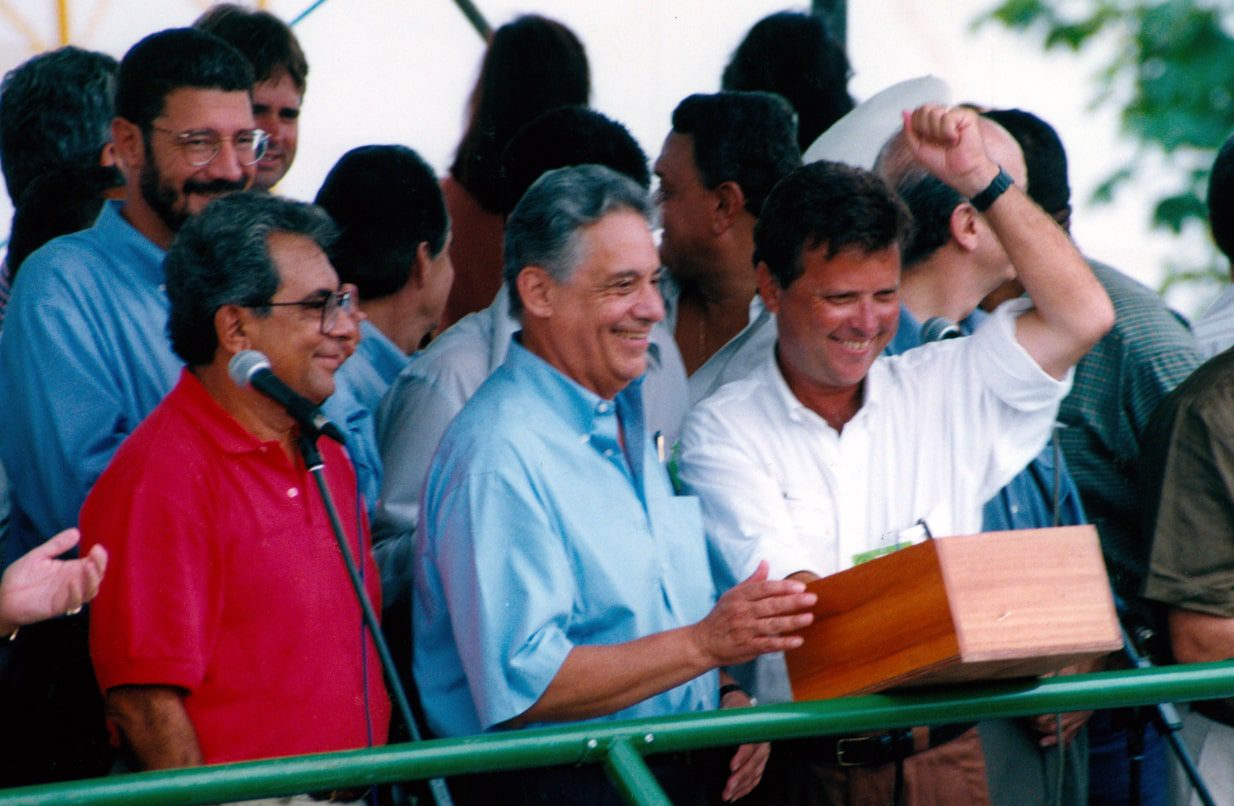
This year was marked by the inauguration of the Northwest Corridor of Exportation and the kick start of navigation activities, in Porto Velho (RO) and Itacoatiara (AM). Also, the André Maggi Foundation was created, which raised funds for the construction of the Renato Sucupira Hospital and Maternity, in Sapezal.
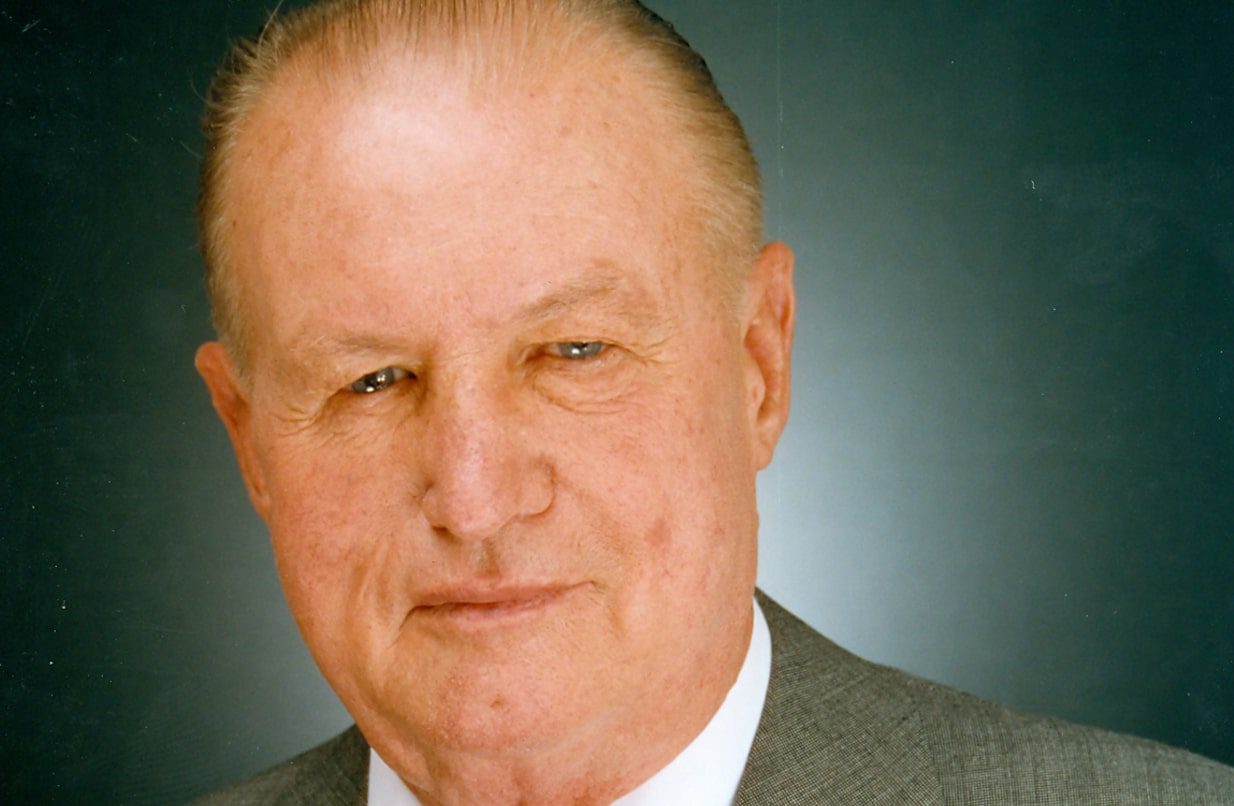
After his father’s death, Blairo took over the presidency of the André Maggi Group, becoming the mais executive. Also, in 2001, the soybean crushing process began in Cuiabá (MT).
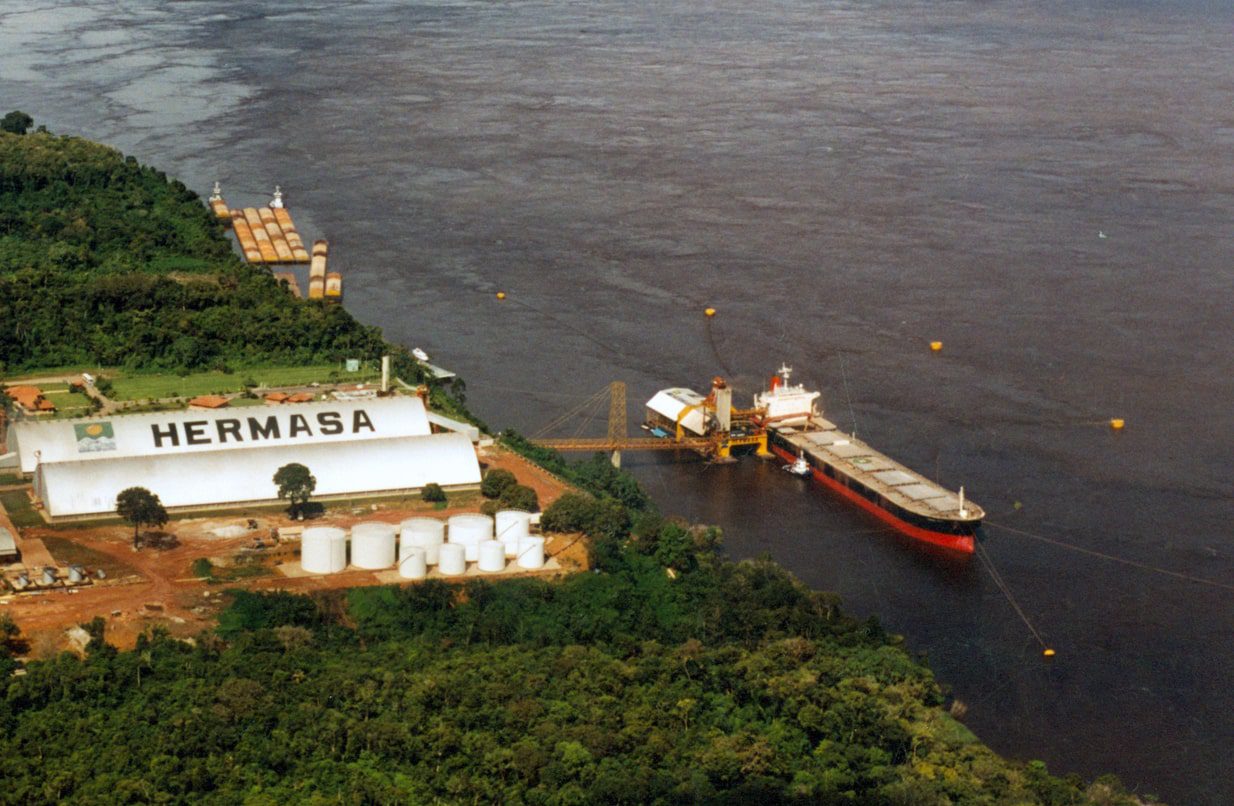
With Navigation already implemented in Itacoatiara, through the Northwest Corridor, it was time for the industry to start its operations.
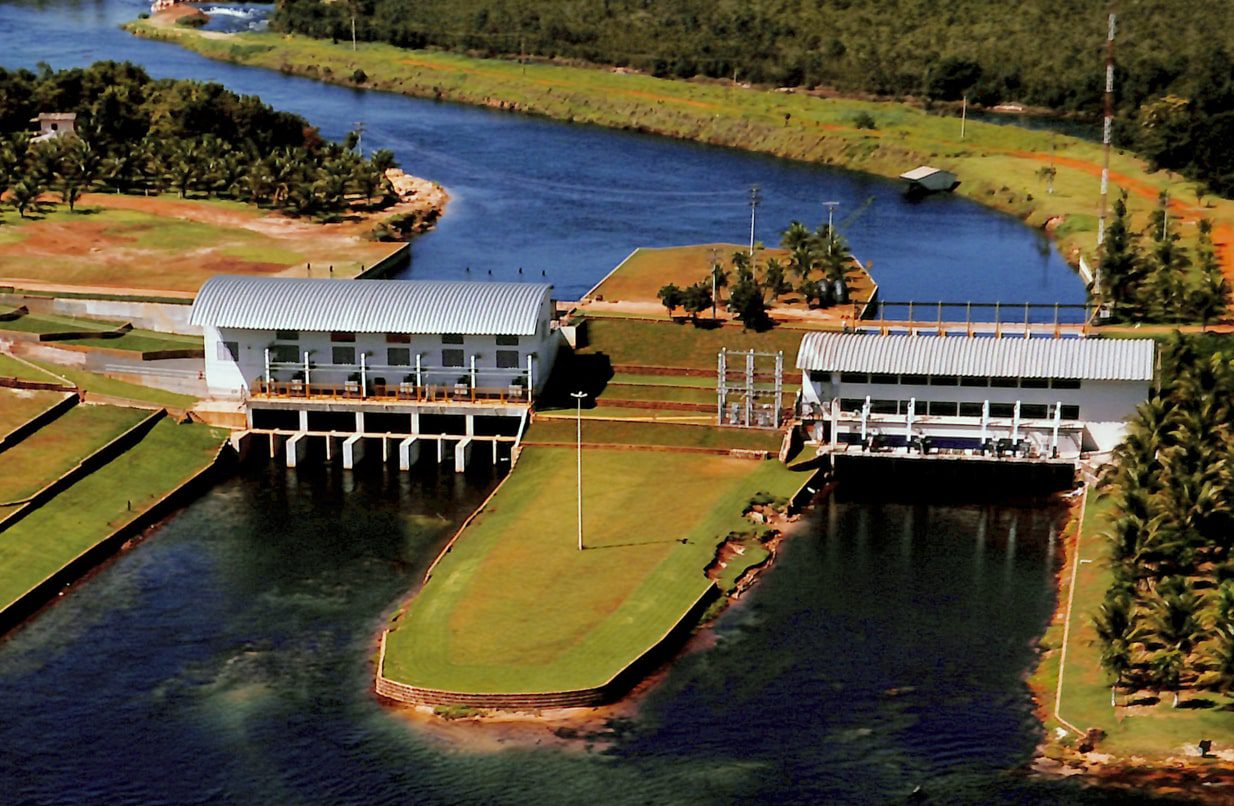
We implemented the Environmental Management System and started the commercial production of a new Small Hydroelectric Power Plant (SHP), a Santa Lúcia II, in Sapezal (MT).
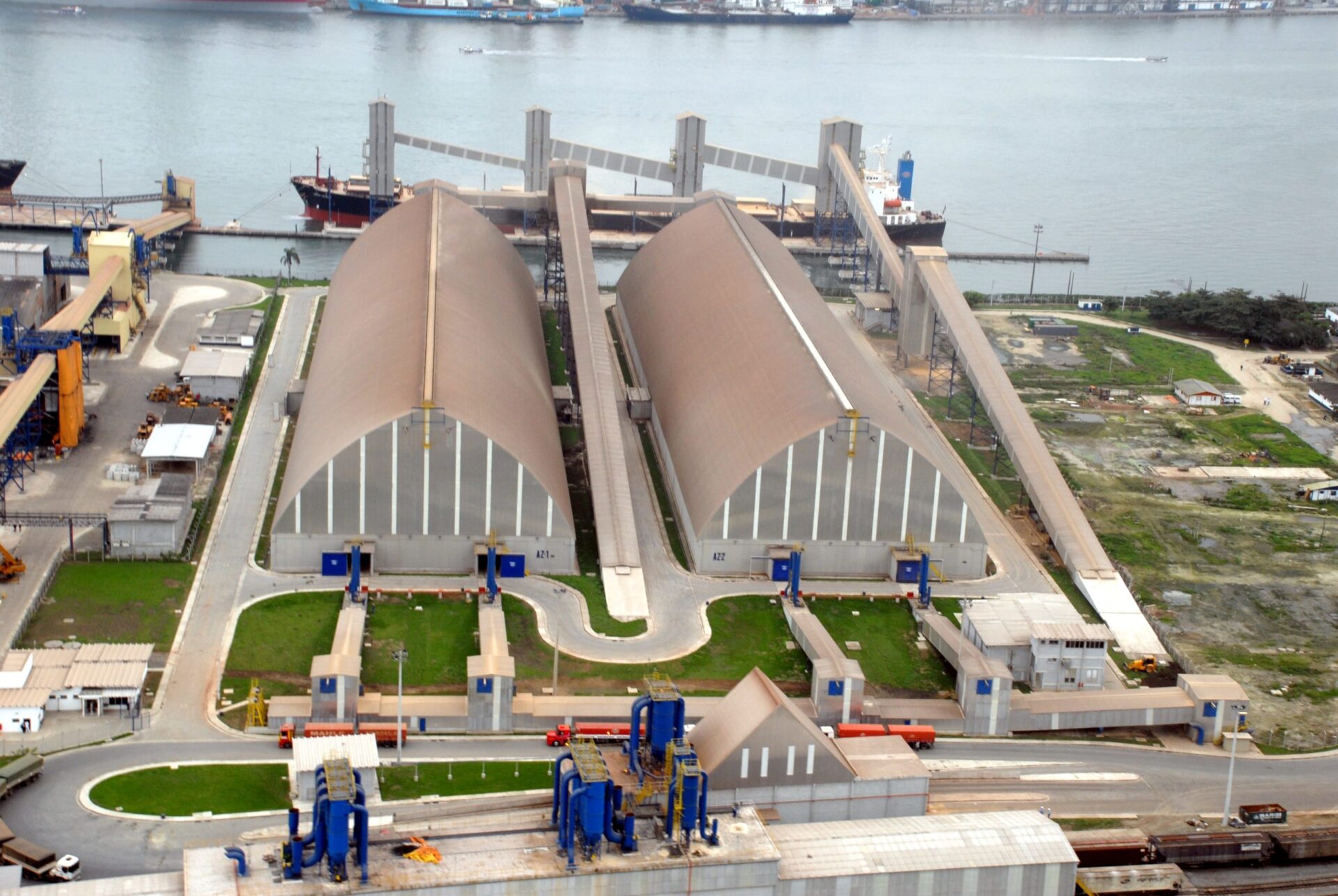
In 2007, we started the Guarujá Bulk Terminal operations (TGG) and our billing reached its first billion dollars. We have also obtained the ProTerra and ISO 14001 certifications.
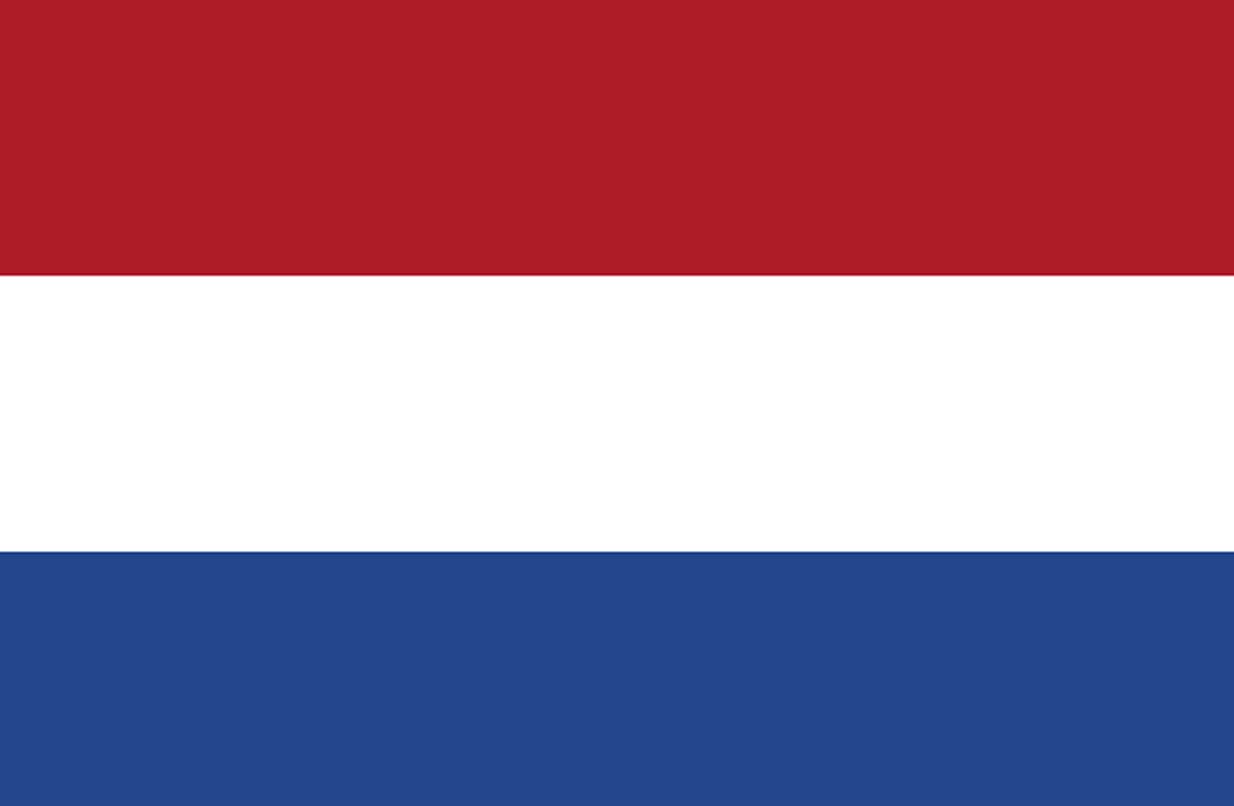
Located in Rotterdam, the Netherlands, the opening of the office in the second largest and most important city of the Netherlands opens up new opportunities. In addition, the Lucas do Rio Verde (MT) industry received the first soybean load. The company also adopted the Global Reporting Initiative (GRI) guidelines for sustainability reporting.
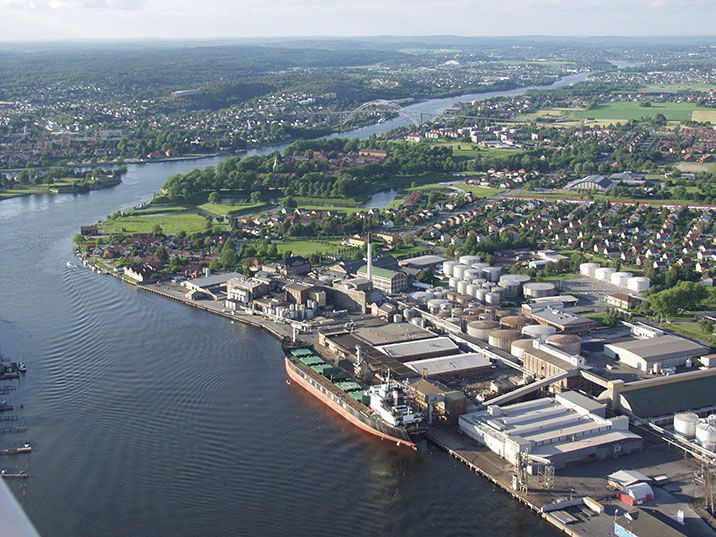
AMAGGI’s presence in Europe expands, with the acquisition of 51% of the shares of the Norwegian Crushing Plant, Denofa. In Brazil, the company headquarters begins its transfer to Cuiabá (MT). Also, the company adheres to the United Nations Global Compact (ONU).
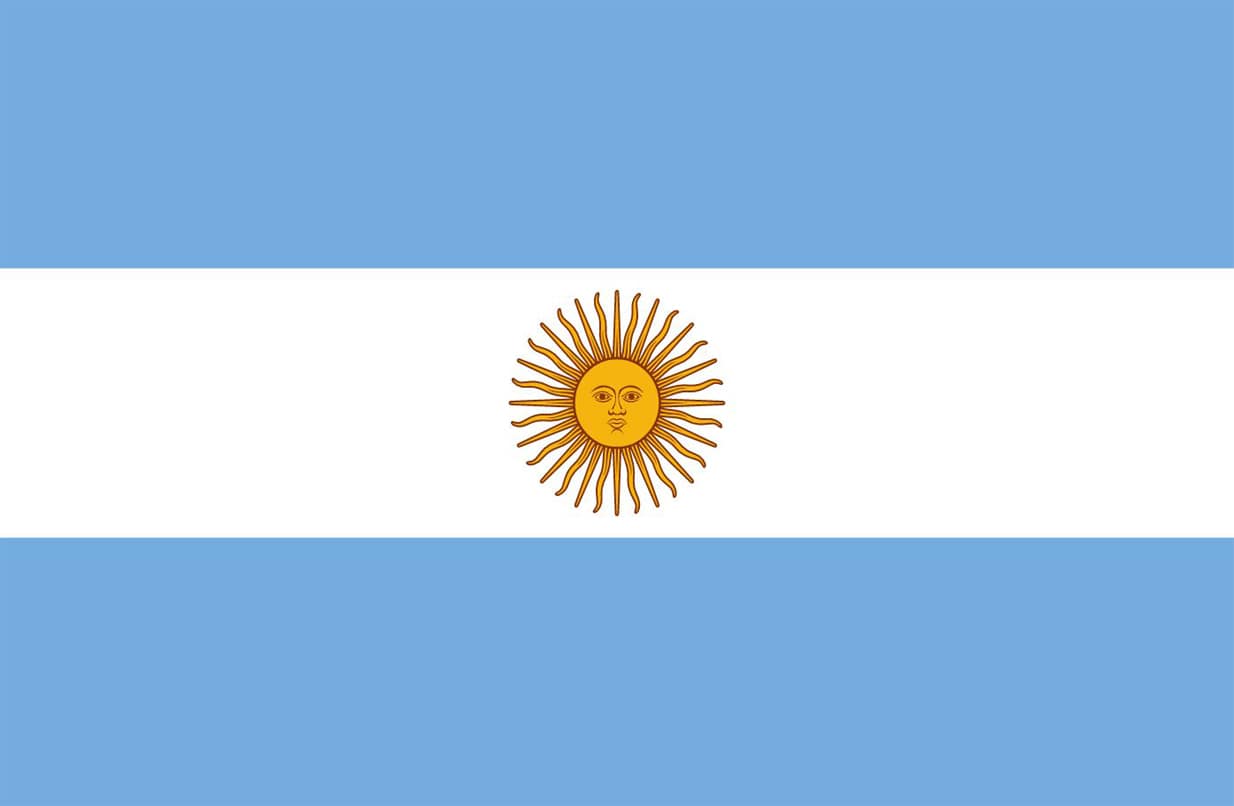
Opening of the commercial office in Buenos Aires, and renewal and expansion of the ISO 14001 environmental certification scope.
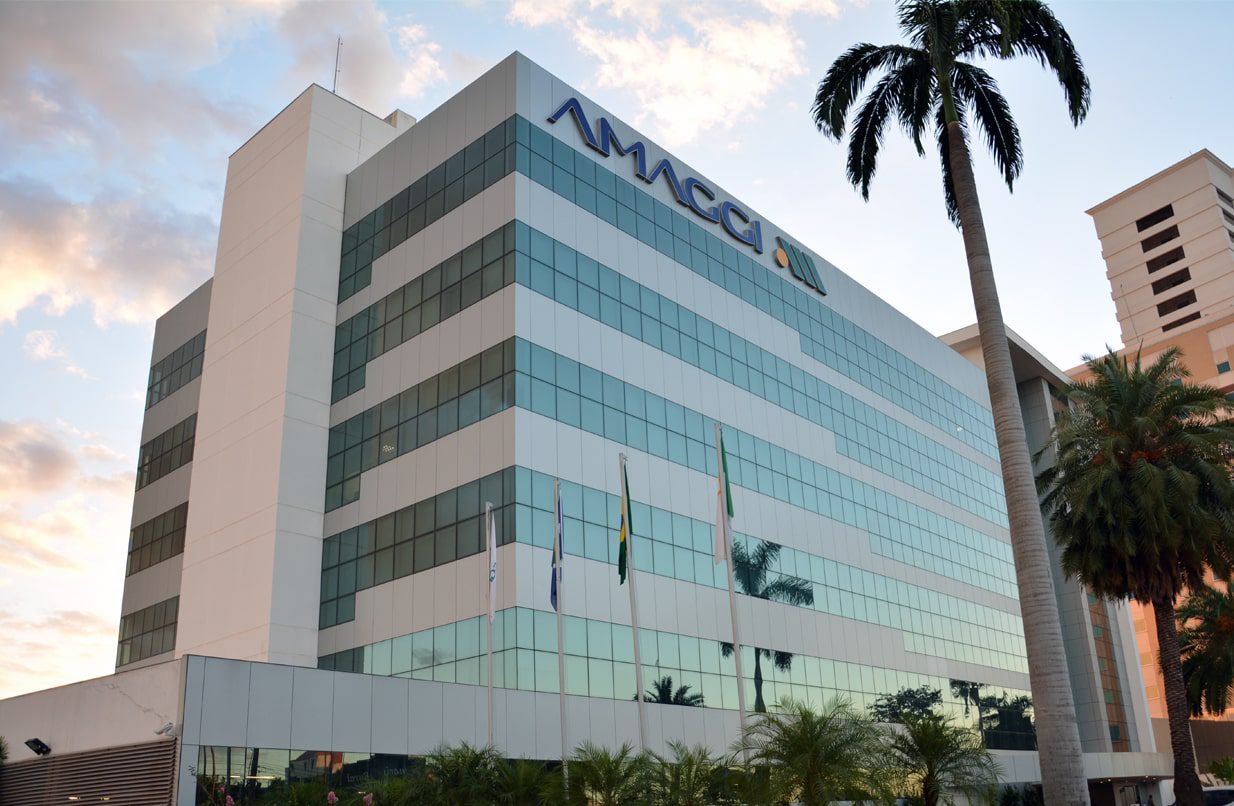
Start of the operations in Argentina, completion of the new headquarters in Brazil, which transferred from Rondonópolis to Cuiabá (MT), beginning of the commercial operation of the Divisa Small Hydroelectric Power Station (SHP) and the Round Table on Responsible Soy (RTRS) certification.
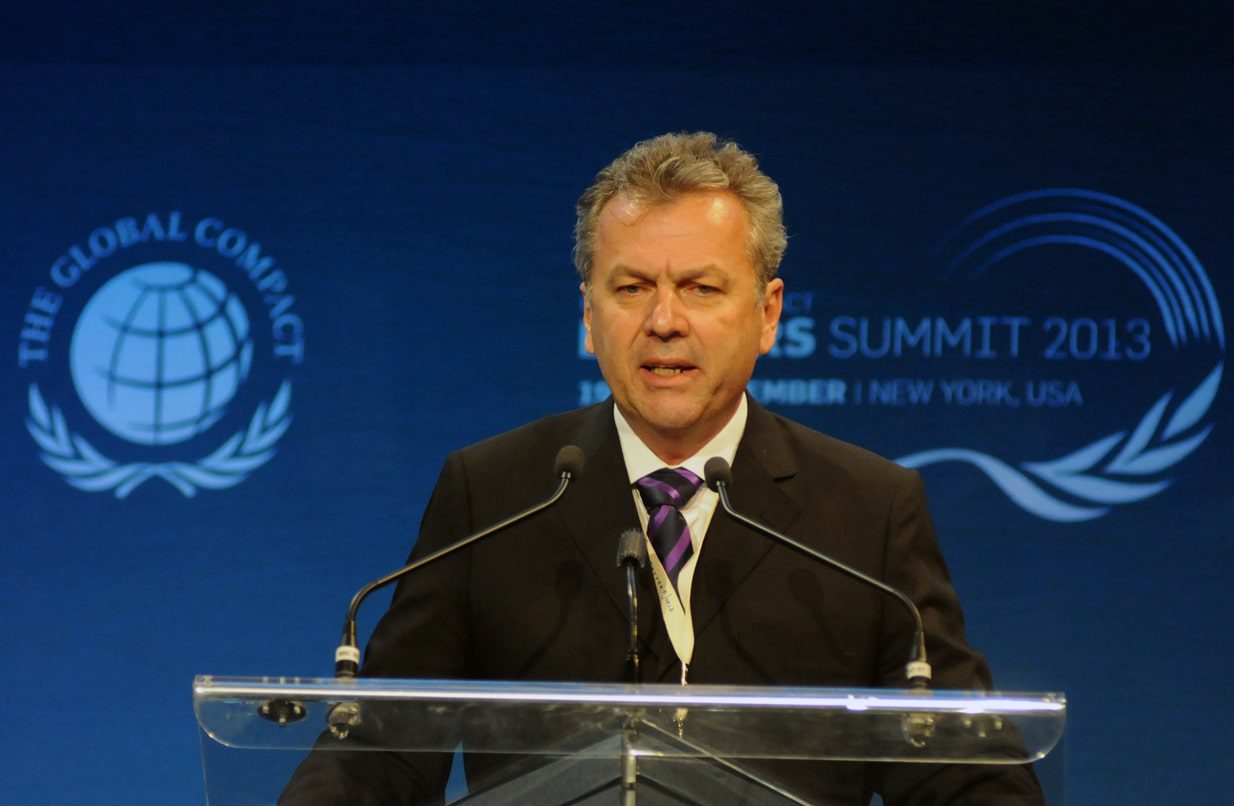
Opening of the commercial office in Lausanne, Switzerland, and acquisition of 100% of Denofa S.A. Start of the Segredo and Ilha Compida SHPs in Sapezal (MT). Acquisition of Santa Lúcia farm, in São Félix do Araguaia (MT). In this same year, we featured in the Exame’s magazine Sustainable Guide, and our CEO spoke at the Global Compact Leaders Summit
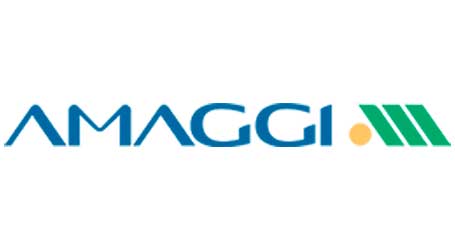
The group starts using its trading name and standardizes the name of its business areas. In parallel, activities begin in the new offices in Paraguay, as well as the Unitapajós and the Tapajós-Amazonas waterway corridor.
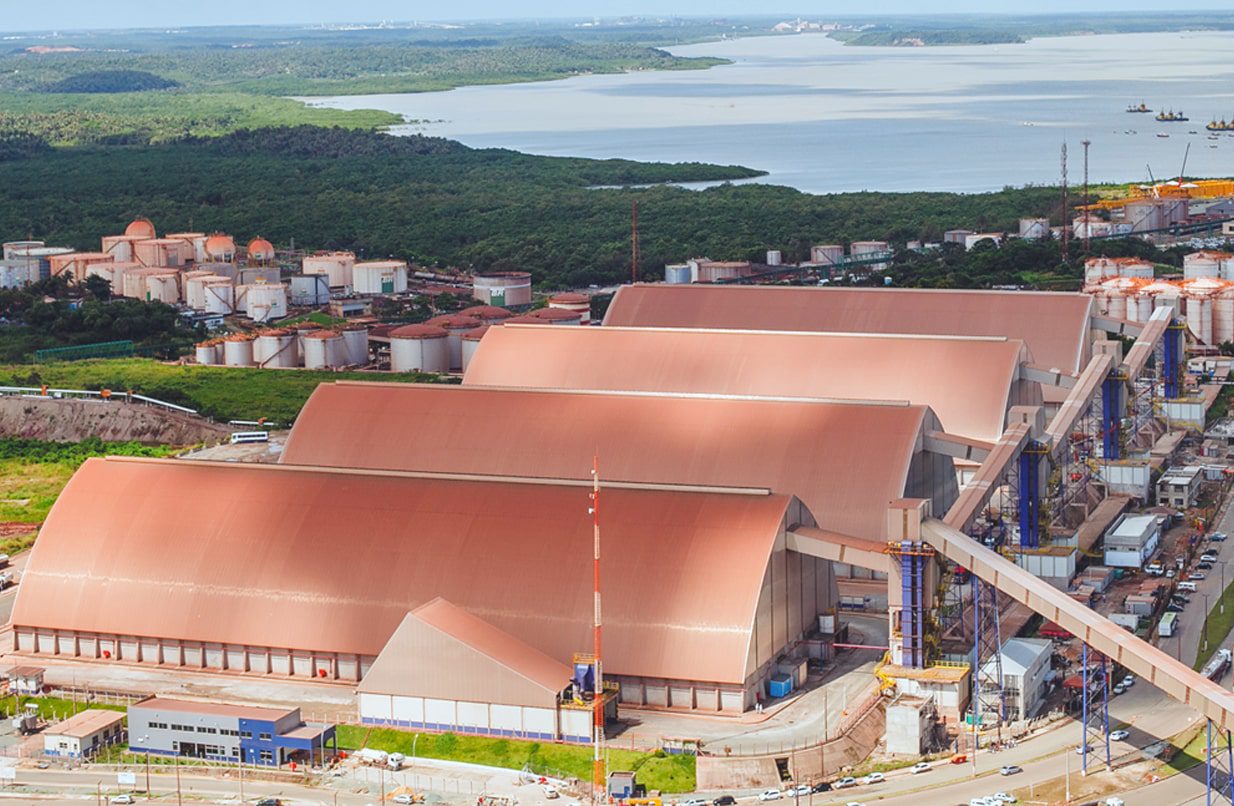
The Maranhão Grain Terminal (Tegram) starts its operations in São Luís, and Portochuelo in Porto Velho (RO). Vale do Araguaia farm has its first crop harvested. The commercial representation in China begins its activities. Socio-environmental Management is created and the first Producers Awards payments start.
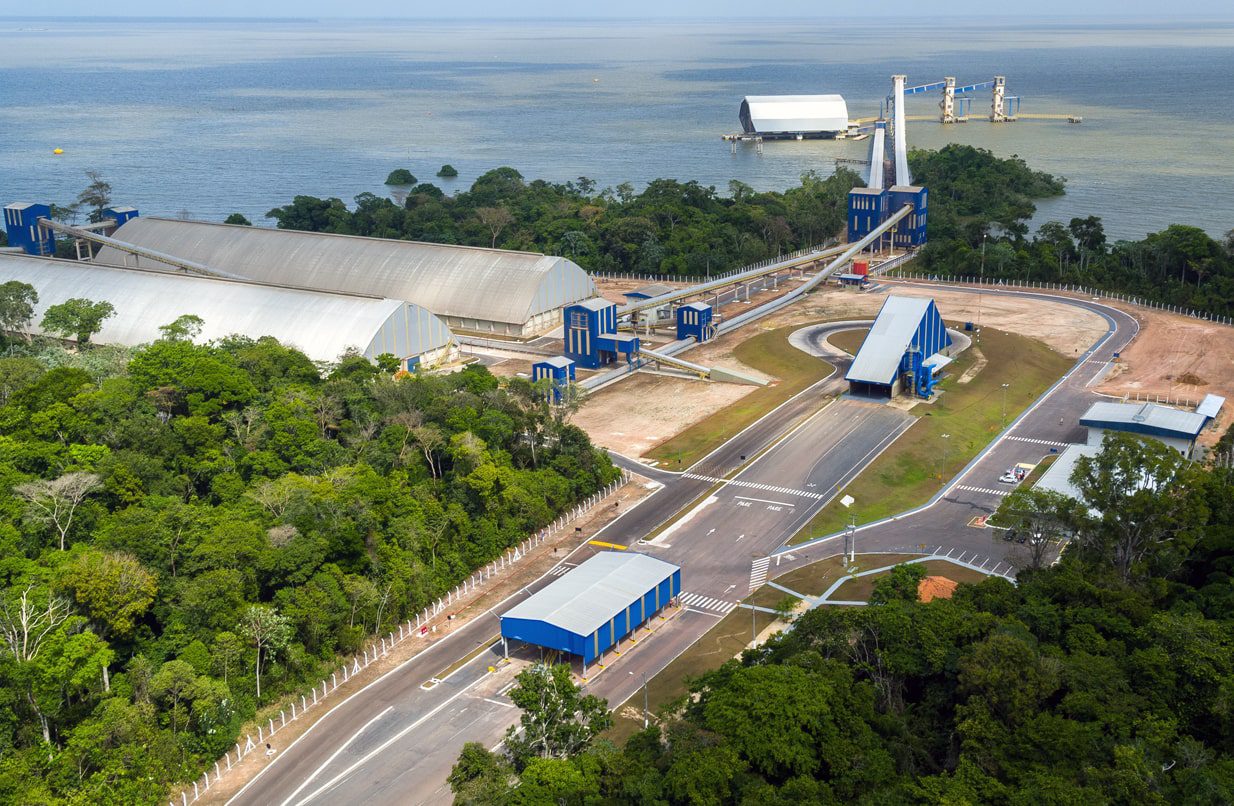
Commercial activities start in China, acquisition of 50% of the Miritituba Transshippment Station (PA) and the Barcarena Port Terminal (PA), and the fertilizer mixer plant is inaugurated in Comodoro (MT). Achievement of the GHG Agricultural Protocol Gold Seal Responsible Soy Standard, from and implementation of the “ORIGINAR”, a management platform that monitors the grain chain.
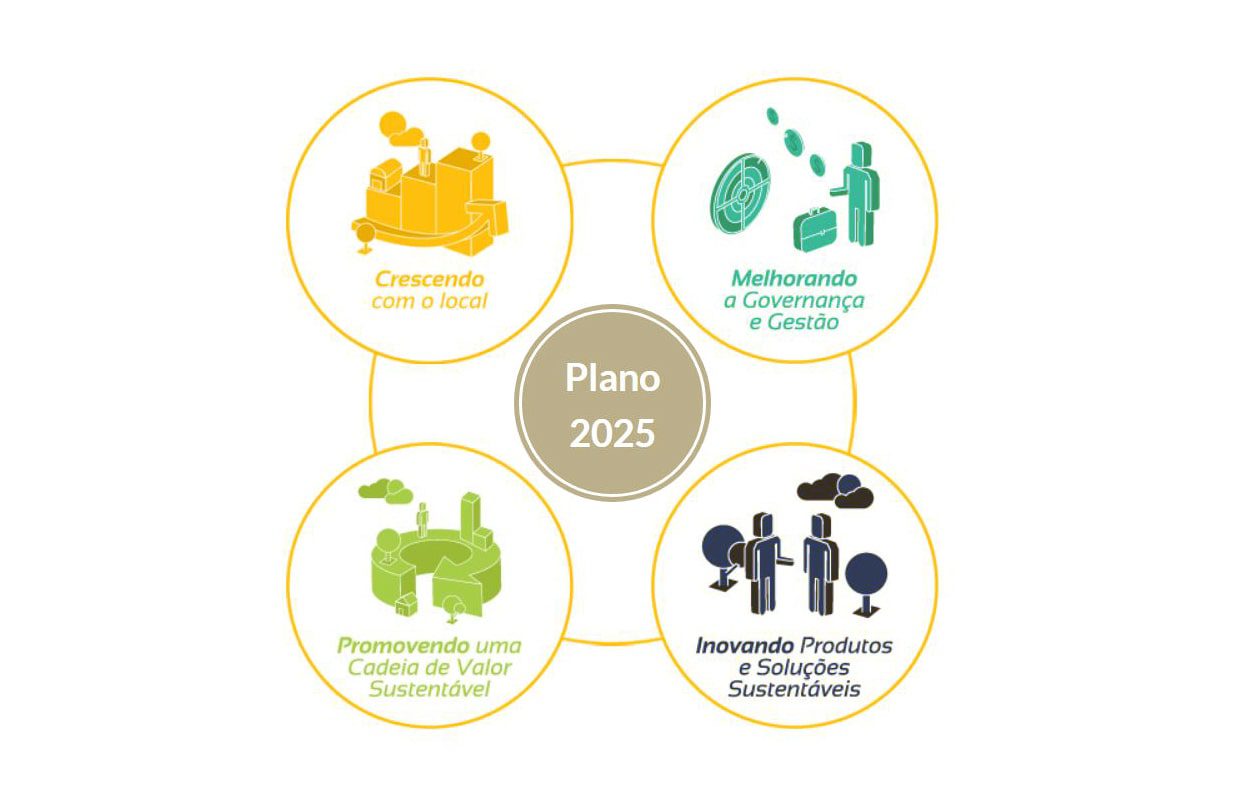
In the year that AMAGGI completed four decades of foundation and responsible growth, the Company's Global Sustainability Positioning was developed. The Compliance Program and Integrity Policy were also elaborated, which deal with important issues such as the fight against corruption.
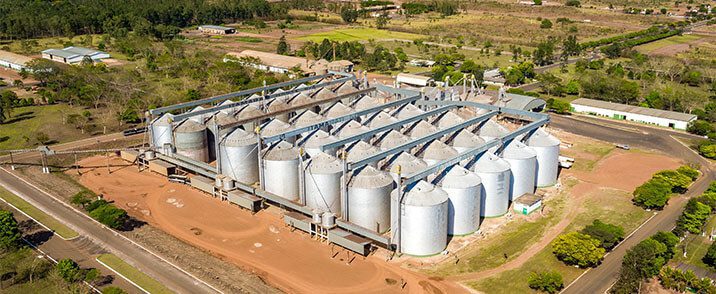
Purchase of the Itamarati farm located in Campo Novo do Parecis (MT); Responsible Cotton Brazilian Certification (ABR); Opening of the Origination office in Paragominas, in the state of Pará.
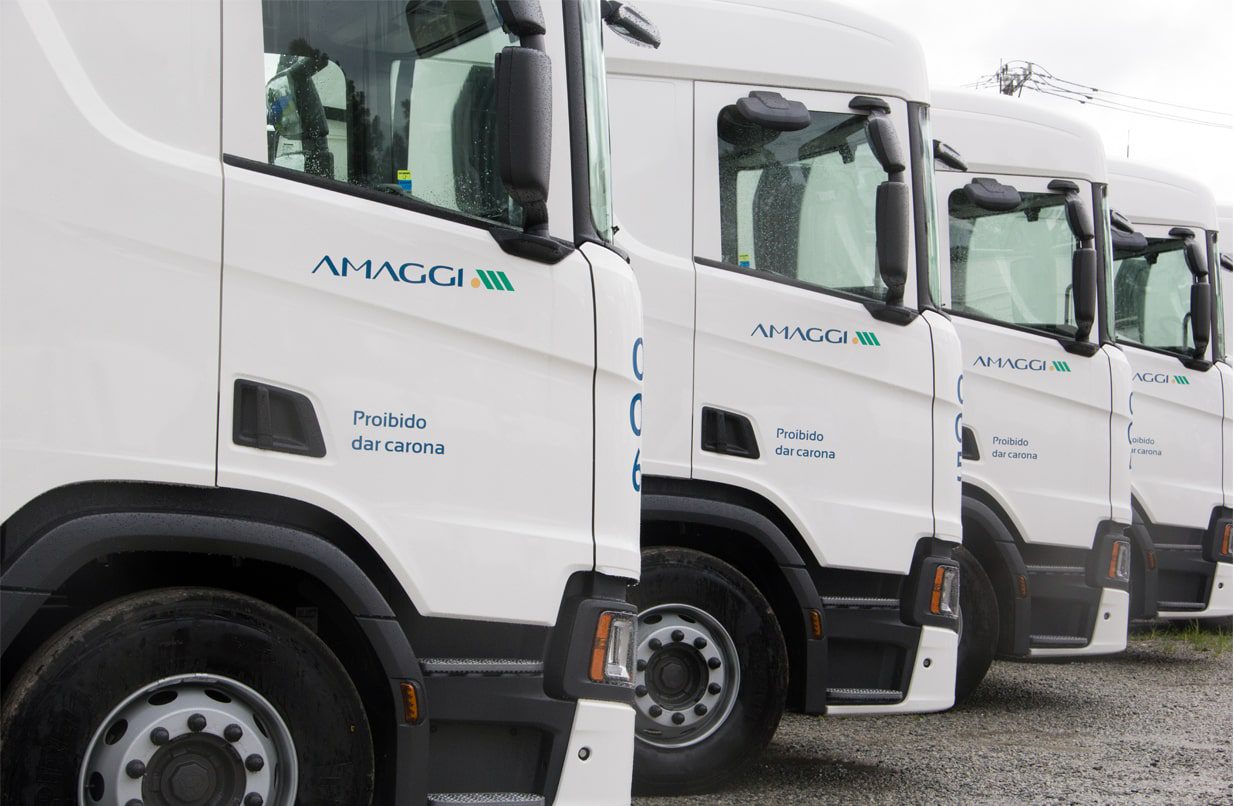
Start of road operations with its own fleet of trucks. 40 years of operation in Mato Grosso.
AMAGGI's institutional collection was created in 2013 by the Corporate Communication area. It consists of more than seven thousand cataloged items that tell the story not only of AMAGGI, but also the Maggi family and people important for the construction and continuity of the company.
There are audios, videos, documents, institutional publications, news published in the press and various objects that also make up a bit of the history of agriculture, logistics and energy in Brazil.
AMAGGI's Memory Space is located at the company's headquarters, in Cuiabá-MT. Items are stored digitally and electronically in the cloud.
In the collection, we highlight almost a hundred interviews carried out to integrate the company's Oral Memory, where the story is told by family members and company employees, both active and retired. In addition, an iconographic collection includes images of the first farms and branches, including the construction of the city of Sapezal-MT, designed by André Antonio Maggi.
